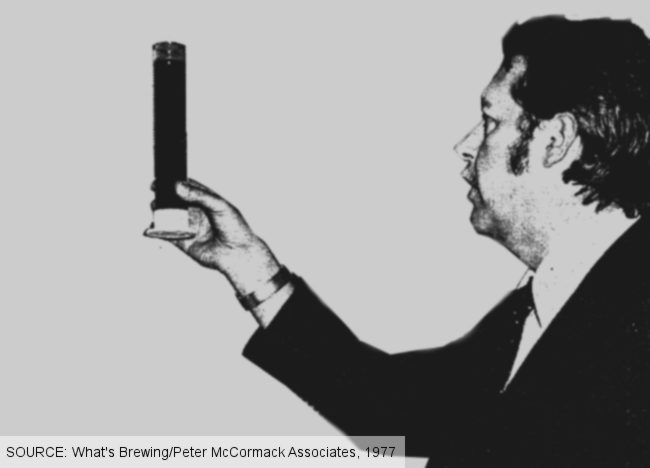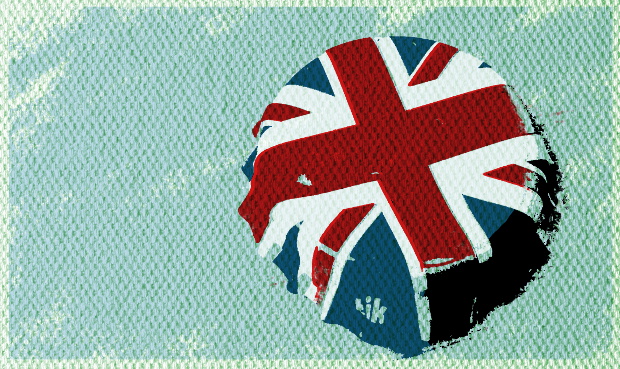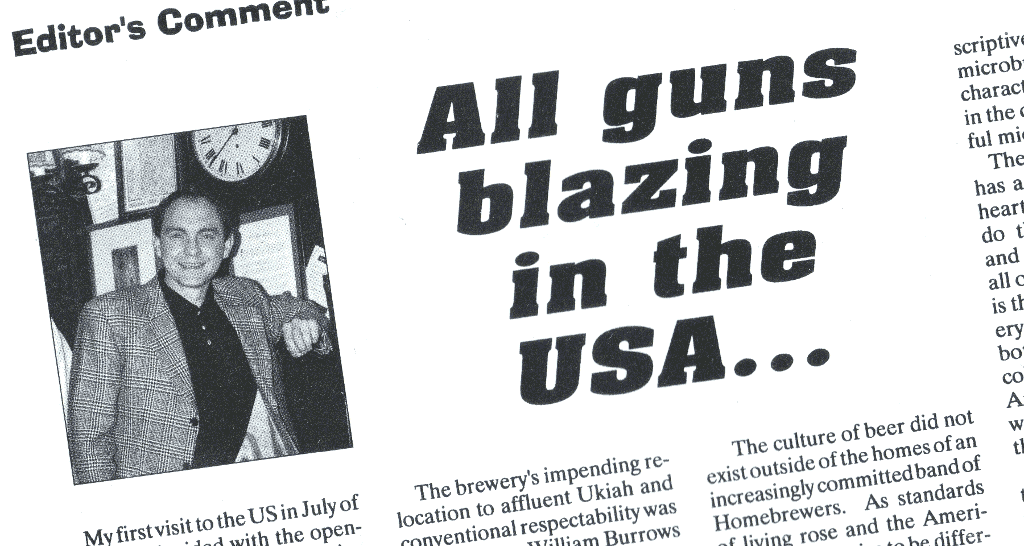
In 1973 the food critic Henri Gault published ‘The Ten Commandments of Nouvelle Cuisine’, crystallising the new movement then sweeping French gastronomy:
- Thou shall not overcook
- Thou shall use fresh, quality products
- Thou shall lighten thy menu
- Thou shall not be systematically modernistic
- Thou shall seek out what the new techniques can bring you
- Thou shall eliminate brown and white sauces
- Thou shall not ignore dietetics
- Thou shall not cheat on thy presentation
- Thou shall be inventive
- Thou shall not be prejudiced
(This is the translation given by Paul Freedman in Ten Restaurants That Changed America, 2016. There are many subtly different versions around.)
From this side of the 1980s, Nouvelle Cuisine is a bit of a joke — huge plates, tiny amounts of silly food, very expensive. What yuppies ate. But that list made us think about changes in beer that were taking place in the same period with the rise of micro-brewing and ‘alterno beer’.
Of course some of those commandment don’t directly map (overcooking, sauces) but how about if we rewrite them a bit?
- Thou shall not stew good hops.
- Thou shall use fresh, quality products.
- Thou shall lighten thy beer.
- Thou shall not be industrial.
- But thou shall seek out what the new techniques can bring you.
- Thou shall eliminate brown beer (UK) and yellow beer (US).
- Thou shall be transparent about the strength and ingredients of your beer.
- Thou shall not prize marketing over quality.
- Thou shall be inventive.
- Thou shall not be prejudiced.
Of course there are a million exceptions to each of those ‘rules’, as there were in Nouvelle Cuisine as actually practised, but that doesn’t feel to us like a bad summary of where — in the very most general sense — people’s heads were between about 1963 and, say, 2015. (We say 2015 because, in very recent years, something seems to be changing. But that’s just a gut feeling which we’re still probing.)
This feels like a connection Michael Jackson, Charlie Papazian, Garrett Oliver or even Sean Franklin must have made at some point but a quick Google (time is short this morning) doesn’t turn anything up. Pointers welcome in comments below.
To finish, here’s another quote from Freedman:
Nouvelle Cuisine of the 1970s… had two missions that have since gone separate ways: to exalt primary ingredients simply prepared, and to advocate variety resulting from breaking with tradition — new combinations such as Asian fusion.
That sounds a bit like the break between ‘real ale’ and ‘craft beer’, doesn’t it?





